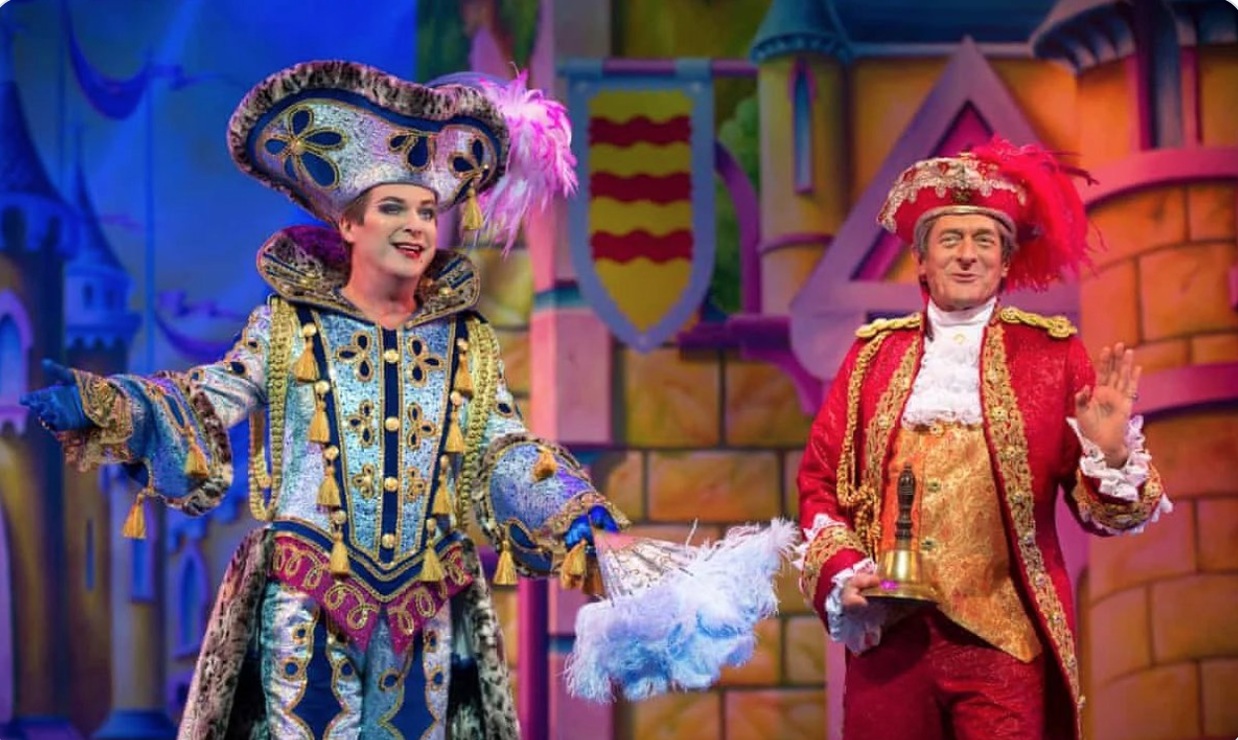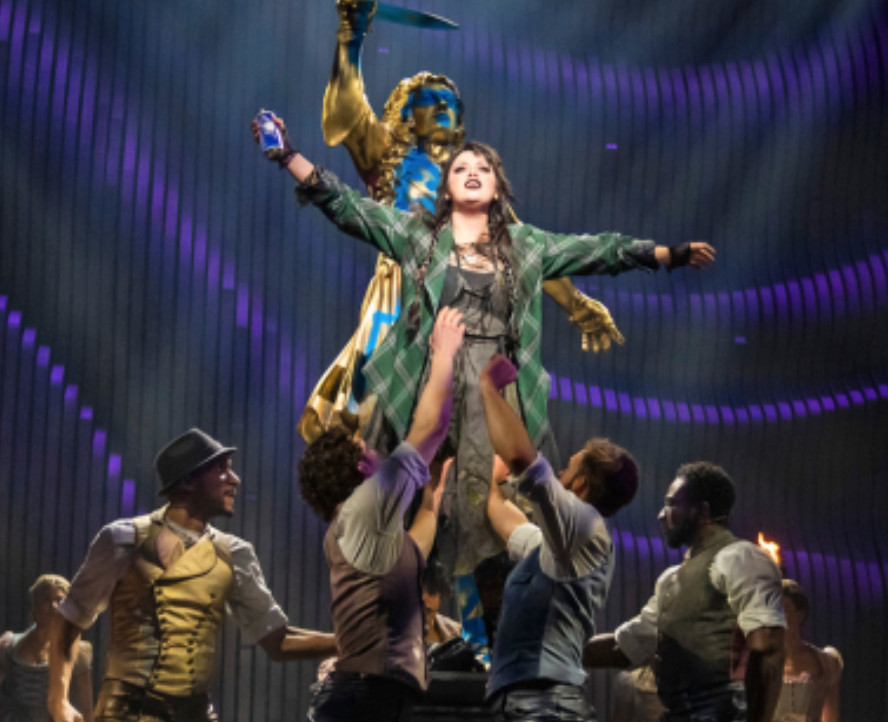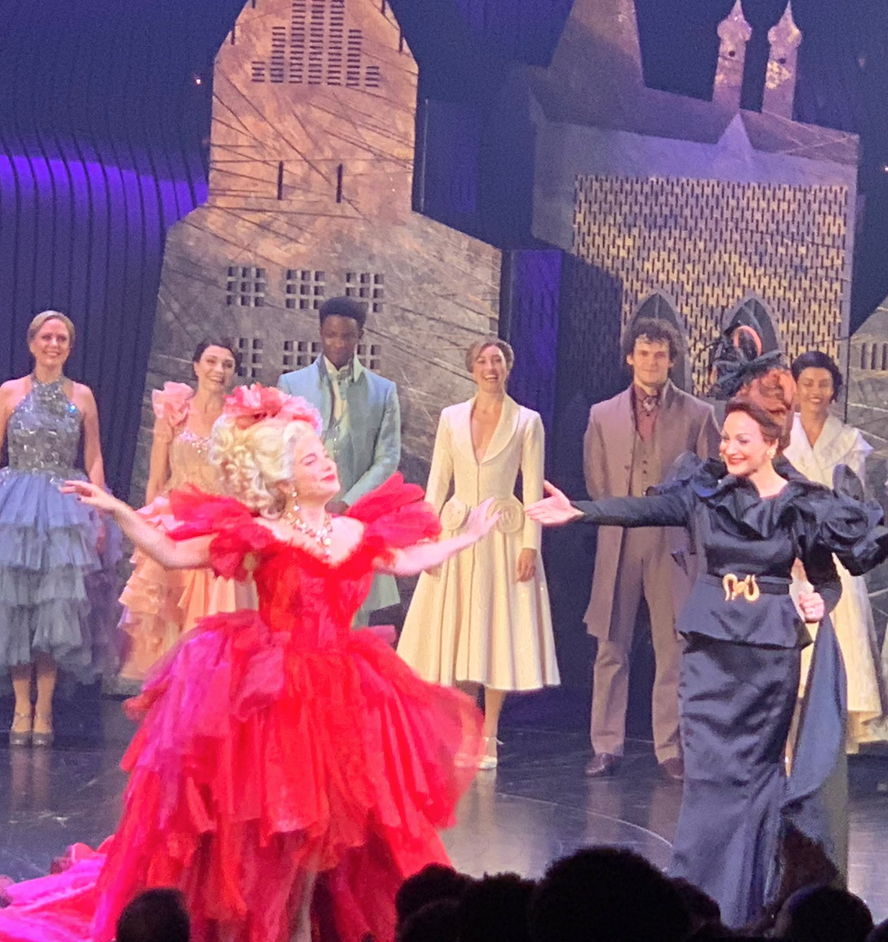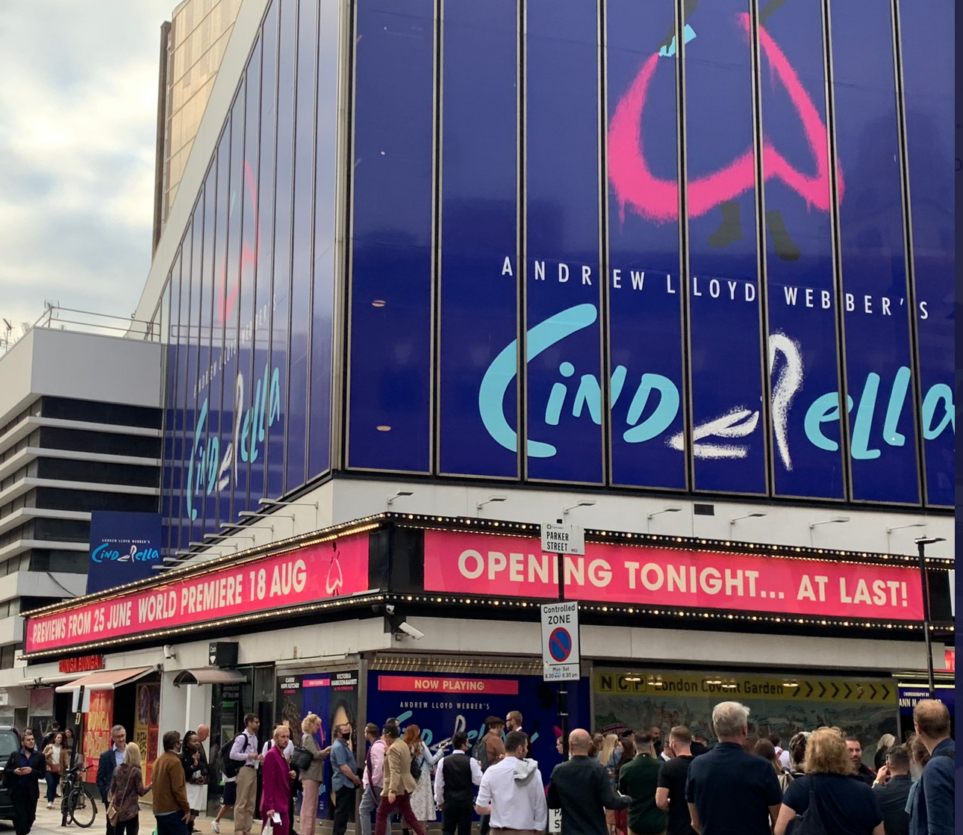It has been harder for Andrew Lloyd Webber to schedule a press night for Cinderella than any prince has ever had to find the wearer of the glass slipper in the fabled fairytale that has already played a central role in prior musicals like Rodgers and Hammerstein’s own 1957 television musical version of the same story (belatedly adapted to become a Broadway musical itself in 2013), or Sondheim’s Into the Woods (premiered on Broadway in 1987, 40 years after R&H’s TV premiere).
But now it has finally happened, with the press invited to the very first public performance back after the show was summarily shut by the composer (who is also his own lead producer and landlord), after a COVID positive case aborted his previously announced gala on July 20 and led him to suspend performances of the show until this week.
As such, he has found himself at the epicentre of the stories around the recovery of theatre. He has claimed that the spotlight he has found himself in as its leading spokesperson was not actively sought by him; but it has long been one of his magical powers. As one of the most publicly recognisable faces of theatre, much of it thanks to his role last decade as a TV talent show judge trying to find actors to star in his own shows like The Sound of Music, Jesus Christ Superstar and a stage version he produced of The Wizard of Oz, he is invariably the belle of the televisual ball. And at a time when he has a new show not just to promote but to actually open, at one of his own theatres, not to mention a reboot of Phantom of the Opera to return to the Her Majesty’s (which it finally did on July 27) and a revival of Joseph at the London Palladium, he had a massive incentive to making the show(s) get back on the road.
I would love to say that it has been worth the wait, but in the cold light of day, the first thing to say is that Rodgers and Hammerstein have nothing to fear. Their version still reigns supreme. Rodgers perfectly crafted melodies like ‘Ten Minutes Ago’ and ‘Do I Love You Because You’re Beautiful’ are sheer enchantment, and won’t be quickly usurped by songs like Buns ’n’ Roses, Hunks’ Song or Man’s Man, whose titles aren’t just the laziest things about them but also signal just where each is going. (Hunks’ Song feels like it could be airlifted into the current West End ‘attraction’ Magic Mike Live, though it’s a relief that at least one of those ‘hunks’ has been allowed to retain more body hair than any of the Hippodrome dancers).

In British theatre, of course, we are more familiar with Cinderella as a panto title; indeed, it was the first in the Palladium’s reboot of the pantomime as a annual event there in 2015, when Julian Clary (pictured above with Nigel Havers) released what Michael Billington in The Guardian called a “tsunami of smut” there as Dandini. Billington also called it “without doubt, the filthiest panto I’ve ever seen”, and declared, “It’s less a show for all the family than for highly sophisticated grownups.” But at least that version knew what it was doing and who is was aiming at pleasing.
This Cinderella — which frequently has a pantomime feel in its pop-up town square sets and campography (as I want to redub JoAnn M Hunter’s choreography) — only has a numbing, grinding kind of competence; I couldn’t see the point of it all or who exactly it was meant for. There are nods towards female empowerment of kind that also inform Six; but these women treat each other pretty shabbily, too, which makes you wonder about the feminist credentials of debuting musical theatre book writer Emerald Fennell. And if its kids who need to see a fairytale musical about empowered women finding themselves, they’d be far better off going to Frozen when it opens at Drury Lane next month (another Lloyd Webber theatre — one that he has stunningly presided over a £60m refurbishment of, and will be his most significant contribution to London theatre this year, rather than this musical).
Meanwhile, you do have to wonder just why fairytales are all the rage in musical theatre right now, as the National Theatre prepares to premiere Hex (a new version of Sleeping Beauty) later this year and Into the Woods is itself being revived at the Old Vic early in 2022.
Cinderella does, of course, land a few sumptuous Lloyd Webber melodies, though they’re made to work hard: four major themes are recycled in endless reprises. There’s also a rather lovely Straussian waltz and a Gloria Estefan tribute, though they are played by a rather frugal nine-piece band under musical director Ben van Tienan that illustrates the cost-cutting that saw Phantom reduced from 27 players to just 14 has also extended here.

Laurence Connor’s production does what it can to disguise the paucity of the material, and all credit to a luxurious cast for making the best of what they are given. Carrie Hope Fletcher — finally originating a lead role in a brand-new musical — earns top billing, giving thrilling voice and plenty of Goth-like character to “bad Cinderella” as she’s characterised. She’s a performer of unfailing generosity and empathy, and manages to shade her into something more interesting than they two-dimensional way she is written.
Ivano Turco’s Prince Sebastian has an even higher mountain to climb, and difficult notes to hit, as a character defined mainly by his devotion to Cinderella. It’s a wet role, and it’s not fault he is dampened in the effort.

There are more unequivocal triumphs for Victoria Hamilton-Barritt as Cinderella’s grasping stepmother and Rebecca Trehearn as the Queen (pictured above at the curtain calls last night), who both steal the comedy honours and Trehearn — one of the very finest voices in musical theatre — also competes with Fletcher for the musical ones.
The Gillian Lynne Theatre — formerly the New London — was the original home to Lloyd Webber’s first mega musical Cats, which ran here for 21 years and became a global export. It also broke new ground for the British musical thanks to Lynne’s electrifying contribution as our first dance-based musical hit; this show, by comparison, turns the clock back on the West End musical and returns it to a mild, muted form of pantomime.

